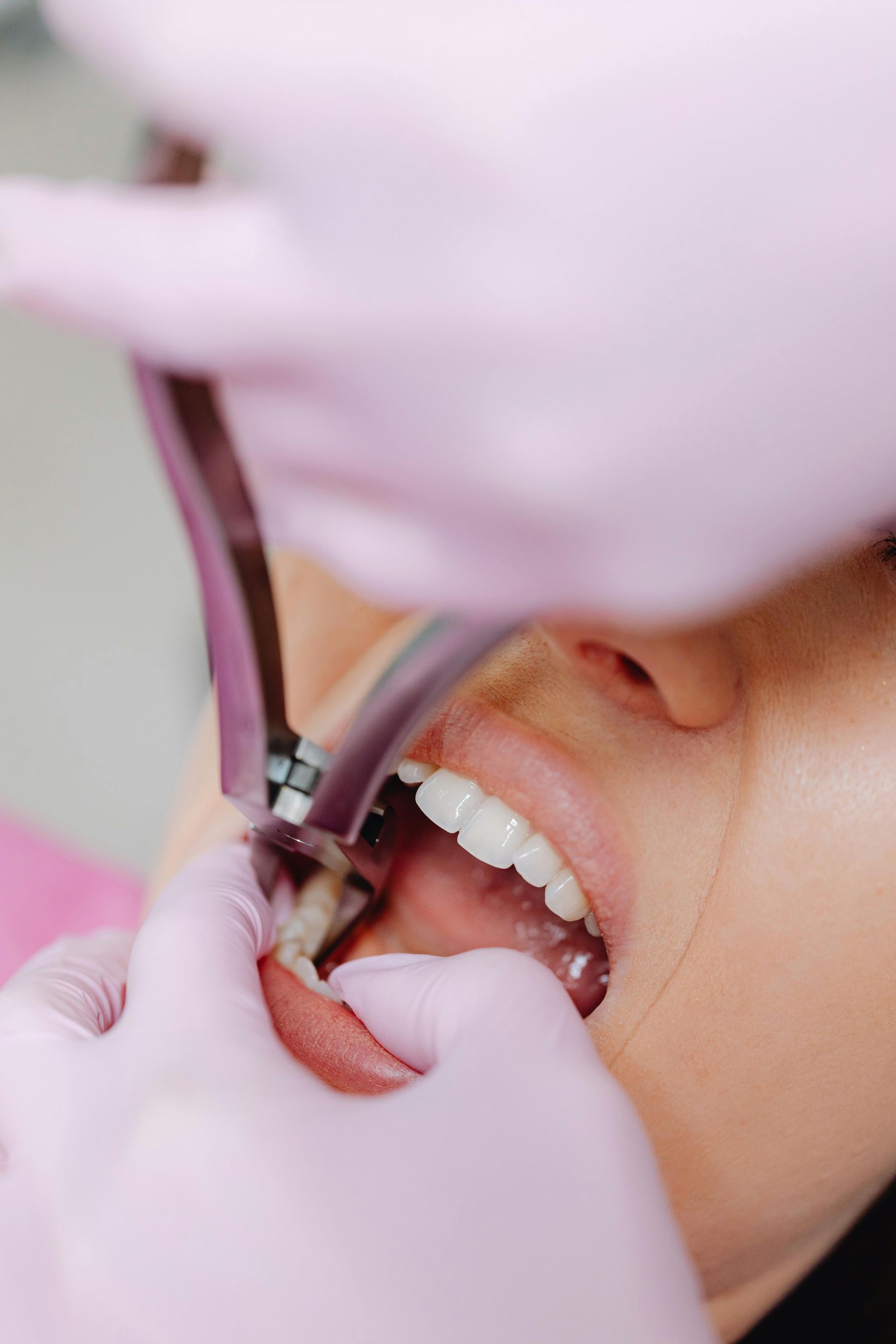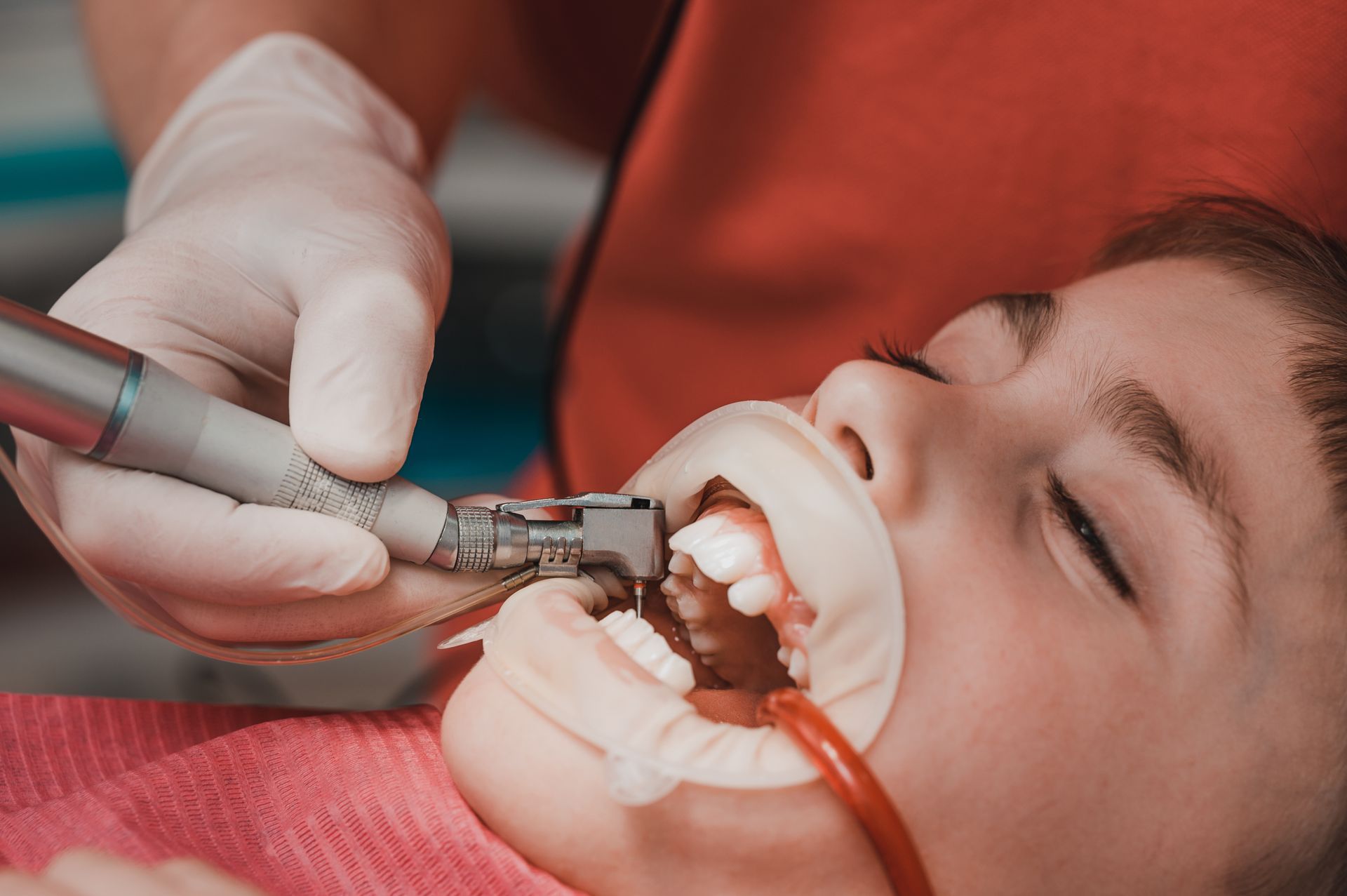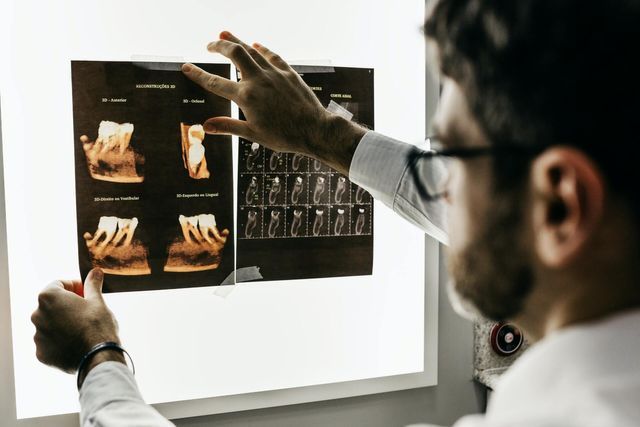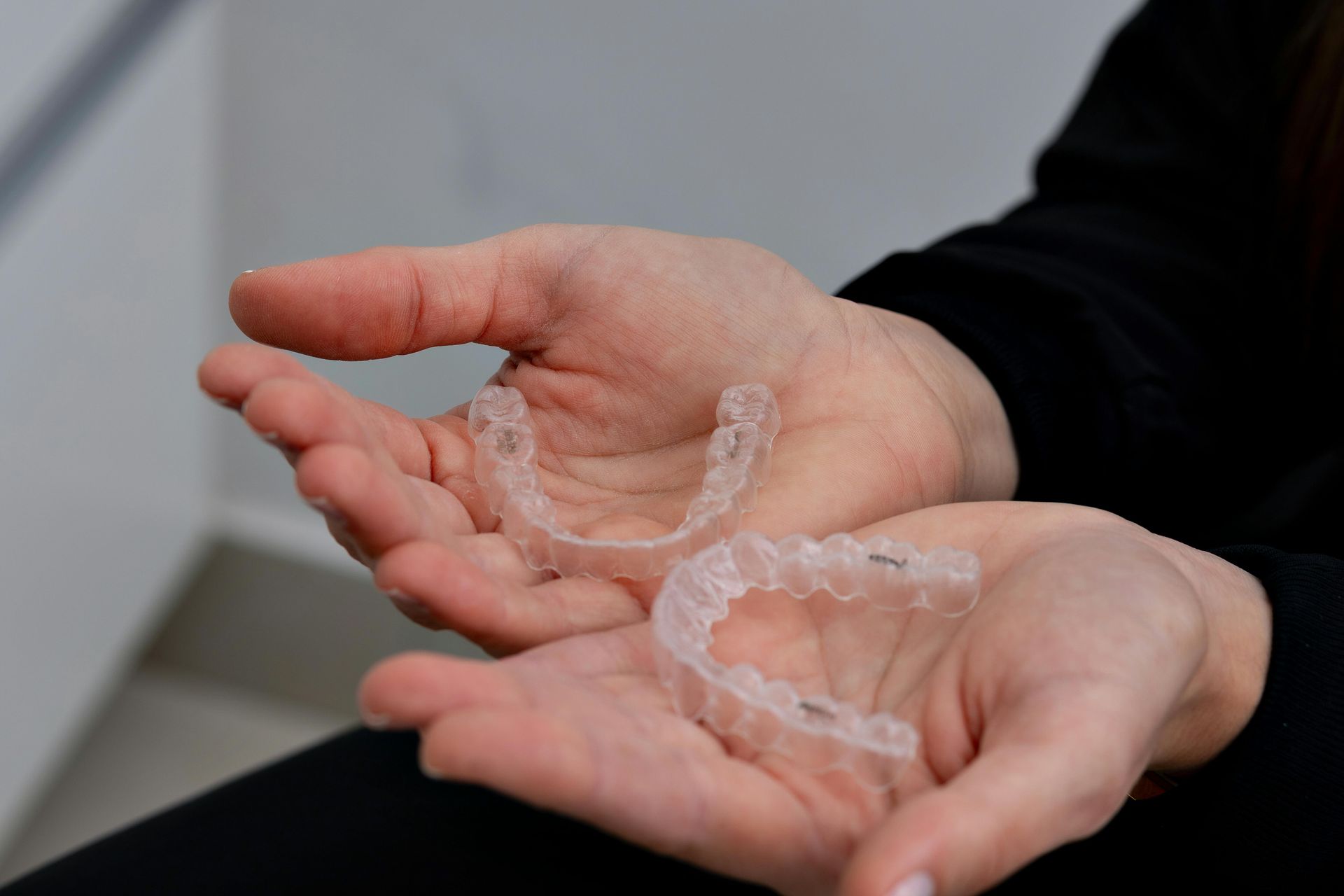Dental Implants and Bone Grafting: What You Need to Know to
Are you thinking about getting dental implants or a bone grafting procedure? If so, it’s important to be informed of the details and processes involved in these procedures. This blog post will give you an overview of what you need to know about dental implants and bone grafting so that you can make an informed decision when pursuing treatment.
Dental implants are a popular and effective way to replace missing teeth. They are artificial root structures that act as the foundation of a prosthetic tooth, providing the same look and feel as your natural teeth. In order to receive dental implants, you must have a sufficient bone structure in your jawbone to support them. If you don’t have this, you may need to undergo a bone grafting procedure in order for the implant to be successful.
1. Understand the Basics of Dental Implants and Bone Grafting
A visit to the dentist isn't always pleasant, but sometimes it is necessary. Dental Implants and bone grafting are two surgical procedures used in dentistry that many people find intimidating. Knowing the basics of these treatments can help alleviate any anxiety you might have when faced with them.
Dental implants generally involve replacing a missing tooth root with an artificial titanium screw topped off with a crown or bridge. Bone grafting involves adding new bone to an existing area of your jaw to make it strong enough for an implant. Regardless of which procedure is recommended for you, understanding the basics will help ensure that you make informed decisions about your own oral health care.
2. Determine if You Need a Bone Graft
Dental implants can provide a permanent solution for replacing missing teeth, but there are several factors to consider when it comes to determining whether you need a bone graft first. First and foremost, your dentist will take x-rays and perform a thorough examination of your mouth to determine the condition of your jawbone; if it is too thin or weak, a bone graft may be necessary to provide the necessary support for an implant.
Your gum health and jaw curvature also play larger roles in a successful implant. Patients with gum disease may require infection control prior to being eligible for dental implants and severe changes in the jawbone can lead to difficulty placing the implant or compromise its stability over time.
If you’re considering dental implants and worried that you may need a bone grafting procedure, make sure you discuss all of your options with your dentist who can better assist you in making an informed decision that’s right for you.
3. Learn About the Different Types of Implants Available
When it comes to choosing the right dental implant for you, there are a number of factors to consider. Different types of implants vary in terms of design and function, so understanding the details can help you make an informed decision. Here’s a quick overview of five common types of dental implants:
- Endosteal Implants: These are the most common type of implants and involve screws that are inserted directly into the jawbone.
- Subperiosteal Implants: These implants rest on top of the jawbone instead of being placed inside it.
- Mini Dental Implants: These small-sized dental implants are ideal for patients who have limited bone in their jaw or who need to replace smaller teeth.
- Immediate Load Implants: These are placed in one session and allow you to have your crowns, bridges, or dentures put in the same day.
- All-on-4 Implants: This implant solution involves placing four dental implants that can support a full set of non-removable teeth.
No matter which type of implant you choose, it is important to remember that both dental implants and bone grafting procedures should be done with the utmost care. By educating yourself on the basics of these treatments, you can ensure that your experience at the dentist will be as pleasant and successful as possible. Talk to your dentist about any questions or concerns that you may have and make sure to follow their instructions closely to ensure the best possible outcome.
4. Consider Your Options for Anesthesia
Anesthesia is an important part of both dental implants and bone grafting procedures. Your dentist will evaluate your pain tolerance and medical history to determine which type of anesthesia is best for you, but there are a few options to consider:
- Local Anesthesia: This involves numbing the area around the implant or grafting site with a shot of medication.
- Conscious Sedation: This is a mild form of sedation that allows you to remain awake but relaxed during the procedure.
- General Anesthesia: This type of anesthesia puts you in a deep sleep and eliminates any pain or discomfort associated with the treatment.
Your dentist will discuss all of your options with you and explain the risks and benefits of each one. It’s important to make sure that you feel comfortable with whatever type of anesthesia your dentist recommends before moving forward with the procedure.
5. Compare Costs Between Dental Implant Procedures
Dental implants and bone grafting can be expensive, so it’s important to compare the costs of different procedures before making your decision. Generally speaking, endosteal and subperiosteal implants are typically more affordable than other types of implants, but the cost will also depend on factors such as your dentist’s experience, the type of implant, and any additional procedures that may be necessary.
It’s also important to consider that insurance may not cover all or part of the cost for dental implants or bone grafting, so make sure to check with your plan before making a final decision. Additionally, some dentists offer financing options for patients who need help covering the cost.
6. Identify Potential Risks Associated With Dental Implants and Bone Grafting
While dental implants and bone grafting can provide long-term solutions for missing teeth, they both involve some potential risks. Before getting either procedure, it is important to understand the potential complications that can arise so you can make an informed decision about your oral health. Here are five potential risks associated with dental implants and bone grafting:
- Infection: If the implant or grafting site becomes infected, it can cause pain, swelling, and even damage to the surrounding tissue.
- Nerve Damage: In rare cases, nerve damage can occur during the placement of a dental implant or bone graft. This may lead to numbness in your teeth, lips, or gums.
- Implant Failure: Despite the best efforts of your dentist, dental implants may fail due to a variety of reasons such as improper placement or poor oral hygiene.
- Sinus Problems: When placing an implant in the upper jaw, it is possible to damage the sinus cavity which can lead to pain and swelling.
- Allergic Reactions: Some patients may experience an allergic reaction to the materials used in either dental implants or bone grafting, such as titanium.
It is important to weigh the potential risks of these procedures against the benefits they provide before making a decision. Talk to your dentist about any concerns you have and make sure that you are fully informed about the possible complications that could arise.
7. Ask Questions to Determine What Type of Procedure Is Best for You
Your dentist is there to help you make the best decision for your oral health care, so don’t be afraid to ask questions about dental implants and bone grafting. Here are a few important questions to consider when discussing these procedures with your dentist:
- Do I qualify for a dental implant or do I need a bone graft first?
- What type of anesthesia will be used during the procedure?
- What is the success rate for dental implants and bone grafting in my particular case?
- How long will it take to heal after the procedure?
- Are there any potential risks or side effects associated with this treatment?
Your dentist is there to provide you with the best care possible, so make sure that he or she answers all of your questions before you decide on a course of treatment.
8. Get Informed on Aftercare Instructions Following Your Surgery
After your dental implant or bone grafting procedure, it is important to follow your dentist’s aftercare instructions closely. This may include taking antibiotics and pain medications as prescribed and avoiding oral activities such as eating hard foods, drinking hot beverages, or chewing gum. Additionally, some patients may need to wear a splint for three days following the procedure and your dentist may also suggest using a special mouthwash or taking probiotics to help you heal faster.
It is important to remember that each patient is unique, so the aftercare instructions for one person may differ from those of another. Make sure to get informed on all of your post-surgery recovery instructions to ensure that you heal properly and quickly.
By taking the time to learn more about dental implants and bone grafting procedures, you can make an informed decision about the oral health care that is right for you. Remember to bring any questions or concerns to your dentist before making a final decision and always follow aftercare instructions closely afterward. We wish you the best of luck as you embark on this journey of self-care.
Dental implants and bone grafting can provide a long-lasting solution for missing teeth. However, it is important to be informed of the risks and benefits associated with these procedures before making a decision. Doing your research and talking to your dentist can help make sure that you are fully informed on all aspects of the procedure, from what type of implant to choose to what type of anesthesia is best for you. Taking the time to learn the basics will go a long way in ensuring that your experience with dental implants and bone grafting is as pleasant and successful as possible.
Are you considering getting dental implants or a bone grafting procedure? At
Frankford Dental Group, we understand that this can be an intimidating process. That’s why our team of experienced dentists is here to provide you with quality care and personalized attention every step of the way. Our goal is to make sure you feel comfortable and informed about your treatment options. If you’re in Lubbock, TX, and are interested in learning more about dental implants or bone grafting, don’t hesitate to call us at (806) 587-5070. We can help answer any questions you may have and provide you with the information you need to make an informed decision. We look forward to hearing from you and helping you achieve a healthier, brighter smile!
Blog







